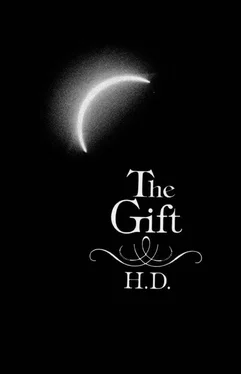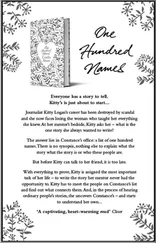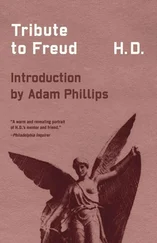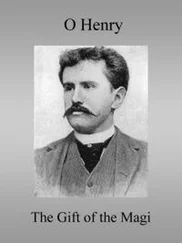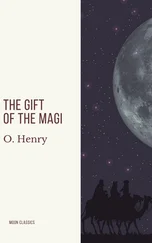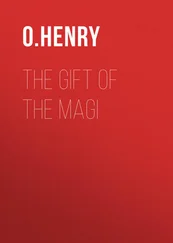Hilda Doolittle - The Gift
Здесь есть возможность читать онлайн «Hilda Doolittle - The Gift» весь текст электронной книги совершенно бесплатно (целиком полную версию без сокращений). В некоторых случаях можно слушать аудио, скачать через торрент в формате fb2 и присутствует краткое содержание. Год выпуска: 1982, Издательство: New Directions Publishing, Жанр: Современная проза, Биографии и Мемуары, на английском языке. Описание произведения, (предисловие) а так же отзывы посетителей доступны на портале библиотеки ЛибКат.
- Название:The Gift
- Автор:
- Издательство:New Directions Publishing
- Жанр:
- Год:1982
- ISBN:нет данных
- Рейтинг книги:3 / 5. Голосов: 1
-
Избранное:Добавить в избранное
- Отзывы:
-
Ваша оценка:
- 60
- 1
- 2
- 3
- 4
- 5
The Gift: краткое содержание, описание и аннотация
Предлагаем к чтению аннотацию, описание, краткое содержание или предисловие (зависит от того, что написал сам автор книги «The Gift»). Если вы не нашли необходимую информацию о книге — напишите в комментариях, мы постараемся отыскать её.
The Gift — читать онлайн бесплатно полную книгу (весь текст) целиком
Ниже представлен текст книги, разбитый по страницам. Система сохранения места последней прочитанной страницы, позволяет с удобством читать онлайн бесплатно книгу «The Gift», без необходимости каждый раз заново искать на чём Вы остановились. Поставьте закладку, и сможете в любой момент перейти на страницу, на которой закончили чтение.
Интервал:
Закладка:
This had not worked out, but it might have worked out and it would work out, I had thought, if I could follow the clue through the labyrinth of associated memories. But I only remembered that I had had this power, the power had gone now; I was a middle-aged woman, shattered by fears of tension and terror, and now I sat in a chair and only remembered that I had been caught up in a vision of power and of peace and I had remembered my grandmother’s words exactly.
She had called me Agnes, and she had called me Lucy.
I was Lucy, I was that Lux or Light, but now the light had gone out. There was not even a small candle, although the lamp on the table by my elbow was burning with a soft glow. In the old days, I had kept a bag ready, packed with a few precious possessions, but now I had no shoes on, only a worn pair of bedroom slippers and I had left my handkerchief pushed down between the arm and the padded seat of the chair in the other room, and I couldn’t go on this way. I must, if possible, get through this, but I could not go on with it, and I could not achieve the super-human task of bringing back what had been lost, so the Promise might be redeemed and the Gift restored. The Gift was a Gift of Vision, it was the Gift of Wisdom, the Gift of the Holy Spirit, the Sanctus Spiritus; actually, it was the same Spirit that Paxnous’ people worshipped, with somewhat the same ritual as that of the initiates of Wunden Eiland .
I could visualize the very worst terrors, I could see myself caught in the fall of bricks, and I would be pinned down under a great beam, helpless. Many had been. I would be burned to death.
I could think in terms of one girl in a crinoline, I could not visualize civilization other than a Christmas tree that had caught fire.
There had been a little Christmas tree here on the table, where the lamp now was. That was the first tree we had had since the “real” war and the fragile glass balls, I had boasted, had withstood the shock and reverberation of steel and bursting shell; “These little balls,” I had said, when I unpacked them from the tangle of tinsel and odds and ends of tissue-paper packing, “are symbolic”; unpicking shredded green tissue paper from a tinsel star, I said, “Look at this, it’s as bright as ever and this glass apple isn’t broken.”
But … I was sick to death of tension and tiredness and distress and distorted values and the high-pitched level and the fortitude, which we had proved beyond doubt that we possessed. I had passed the flame, I had had my initiation, I was tired of all that. It had all happened before. Words beating in my brain could get out, not beat there like birds under wire-cage roofs or caught in nets. What was that? The soul? Something being caught or not-caught in the net of the fowler. We were caught. We were trapped. I was sick to death of being on the qui vive all the time.
I was tired of trying to understand things, I was tired of trying to explain things. I had done my part. Bryher and my child could go on. I was tired of being the older, the stronger, the more perceptive. I was sick of fanatic courage, my own and that of those about me. We had had too much. The mind, the body is not built to endure so much. We had endured too much. I was tired of it. I could not be brave, I would not be philosophical, it was all a trap, a trick, there could be nothing worse.
I was tired of being grateful just for a quiet night — I was sick of being grateful for things that we had always taken for granted. I was sick of my own high exalted level, this climbing up onto a cloud, a dimension out of time. I hated the thought of Abide with me . Though indeed, indeed — the trite old words of the familiar, long-forgotten hymn tunes had come true. What had I known of the darkness deepens when I sang to my grandmother? I had sung those words as an inquisitive, sensitive, overstrung, possibly undernourished child, and now that I was overstrung, undernourished, it all came back.
I had gone round and round, and now I had made the full circle, now I had come back to the beginning. But the words of the hymns were trite, were trivial, and the net of the fowler was no longer a neat Asiatic metaphor but an actuality. But it shall not come nigh thee at this moment was almost a displeasing thought, for sometimes when the mind reaches its high peak of endurance, there is almost the hope — God forgive us — that the bomb that must fall on someone, would fall on me — but it could not — it must not. Because if the bomb fell on me, it would fall on Bryher, and Bryher must go on. That is the way we are trapped, that is the way I was trapped.
Bryher was my special heritage as I had been hers, but she would go on. She did not need me as she had at the end of the last war, and the child was grown up. …
Bryher said again, “It’s the second wave.”
Yes, we were drowning again. We had had almost a hundred air raids in succession in the worst days; that was after the Battle of Britain and we had recovered and now the tide-wave of terror swept over us again. We were drowning again.
The second wave! We would go down, we had gone down, the wave was breaking over us and if we came up to the surface again, there was only one certainty; there would be the third wave. Would the third wave be the last wave? It is true that the psyche, the soul can endure anything. But one did not want the body broken — we must not think about that. I am sitting in the hall in one of the little chairs. Actually, we can breathe, we can talk.
“It’s not just this raid,” I said, “it’s remembering all the others.”
The terrific shattering reverberations of the great guns slackened for a moment. There seemed to be less shaking and rumbling and an echo as of thunderstorm, further off, was probably distant guns following the flight of the bombers that had already passed over our heads. The surprising thing was that we hadn’t all gone raving mad; I do not believe actually one of our friends had left town, driven out by fear. We had had a few weekends and the short summer breaks but actually had scarcely missed less than a half-dozen of the near-hundred continuous days and nights of bombing, not to mention the later, still terrific, but less sustained attacks.
Bells clanged, an air raid warden shouted “Are you all right in there,” someone in a pause called in the hush, “Puss-puss-puss-puss.” Somebody’s cat would or would not respond from behind a familiar ash can or an unfamiliar heap of smouldering bricks and mortar. It had been worthwhile. It had been worthwhile to prove to oneself that one’s mind and body could endure the very worst that life had to offer — to endure — to be able to face this worst of all trials, to be driven down and down to the uttermost depth of subconscious terror and to be able to rise again.
“Well, then, it’s nearly over,” I said.
My hands were cold with that freezing uncanny coldness that one associates with ghosts and ghost stories and sitting in a circle in the dark when they told the story of the man who died of fright because he had nailed his coat to a coffin and thought a skeleton hand had got him. That was a delicious tremor of expectancy, at a party sitting in a circle in the dark. Well, hadn’t this been a sort of party on a grand scale, on, you might say, almost a cosmic scale?
Being shut up in a cupboard in the dark was really associated with games of hide-and-seek and the skeleton hand of death was something to be scared of at a party and to watch other people being scared of, afterwards at the next party. Going down and down in the dark was a sensation to be watched, to be enjoyed even if I had touched rock bottom. I had gone down under the wave and I was still alive, I was breathing. I was not drowning though in a sense, I had drowned; I had gone down, been submerged by the wave of memories and terrors repressed since the age of ten and long before, but with the terrors, I had found the joys, too.
Читать дальшеИнтервал:
Закладка:
Похожие книги на «The Gift»
Представляем Вашему вниманию похожие книги на «The Gift» списком для выбора. Мы отобрали схожую по названию и смыслу литературу в надежде предоставить читателям больше вариантов отыскать новые, интересные, ещё непрочитанные произведения.
Обсуждение, отзывы о книге «The Gift» и просто собственные мнения читателей. Оставьте ваши комментарии, напишите, что Вы думаете о произведении, его смысле или главных героях. Укажите что конкретно понравилось, а что нет, и почему Вы так считаете.
